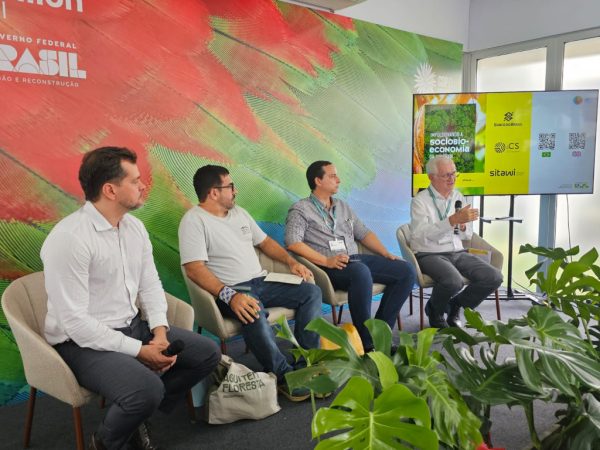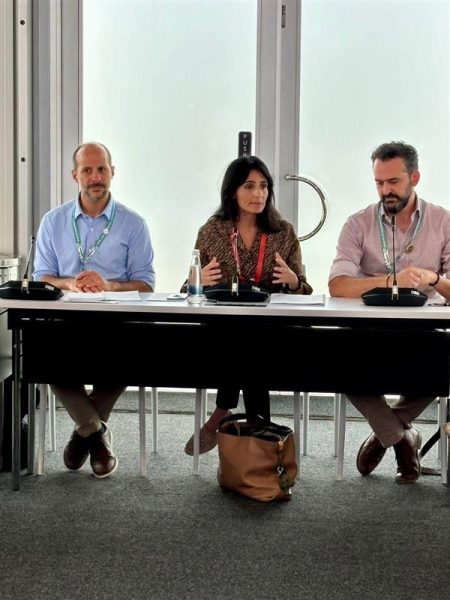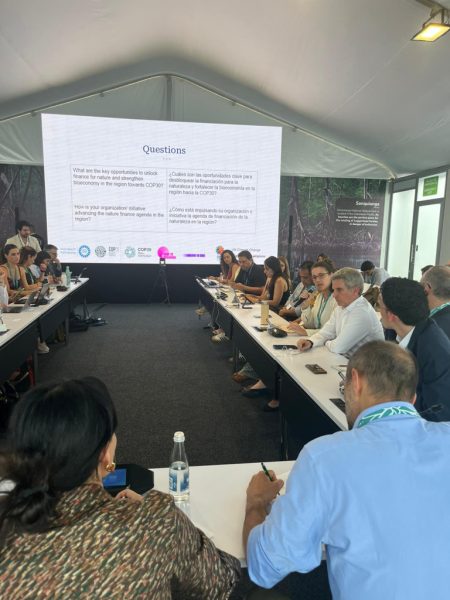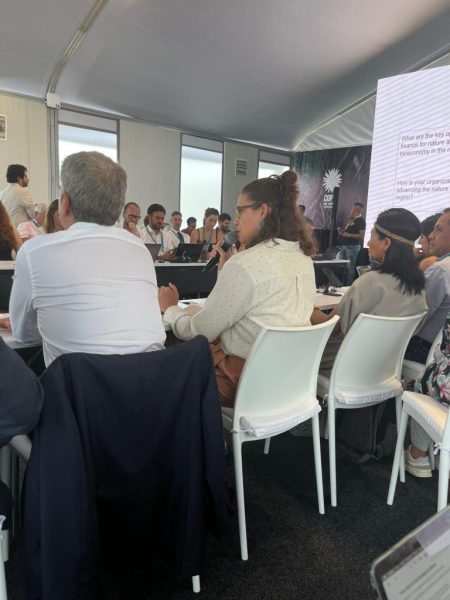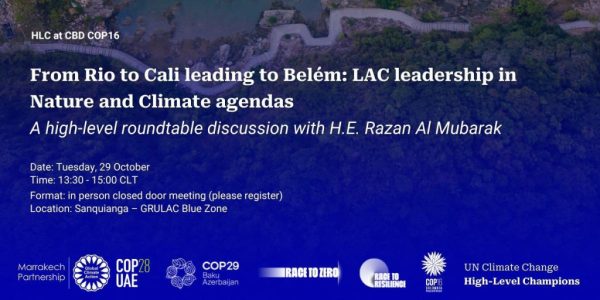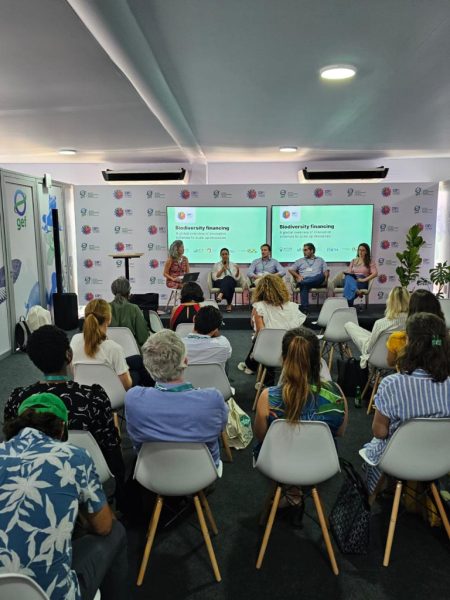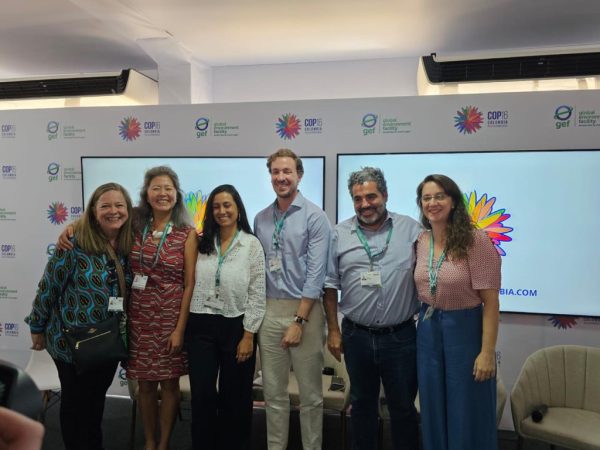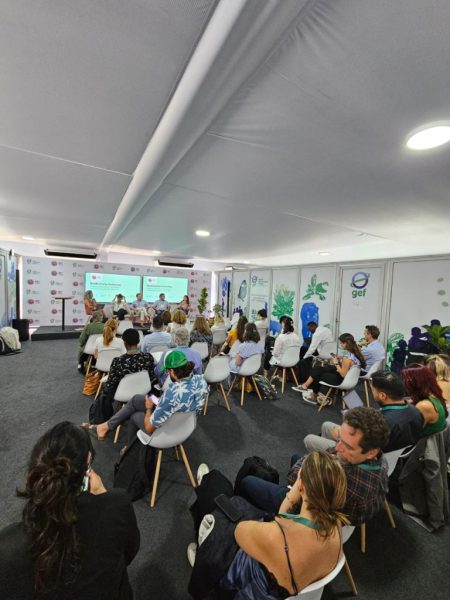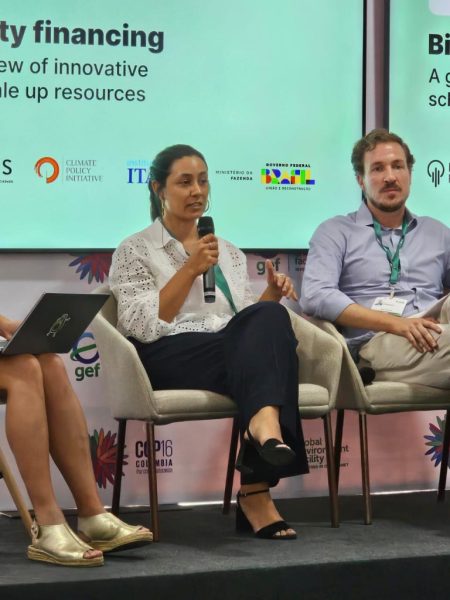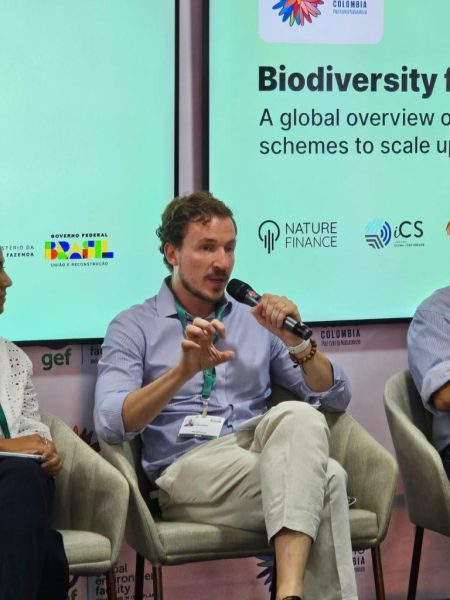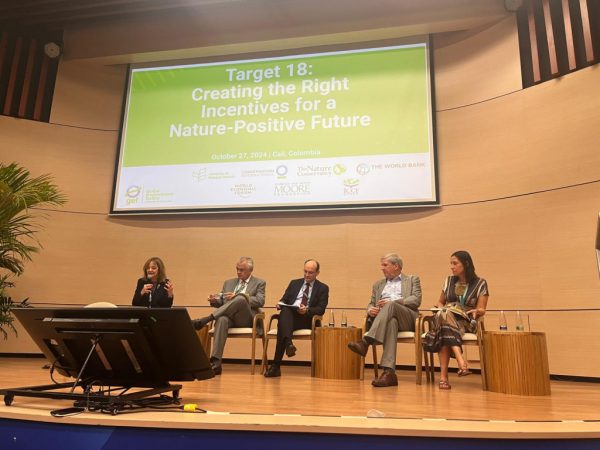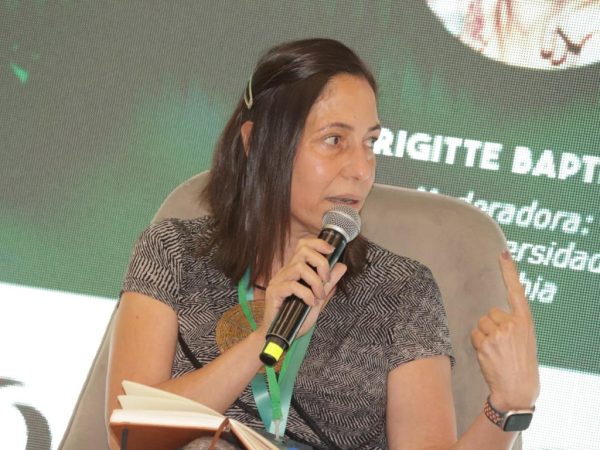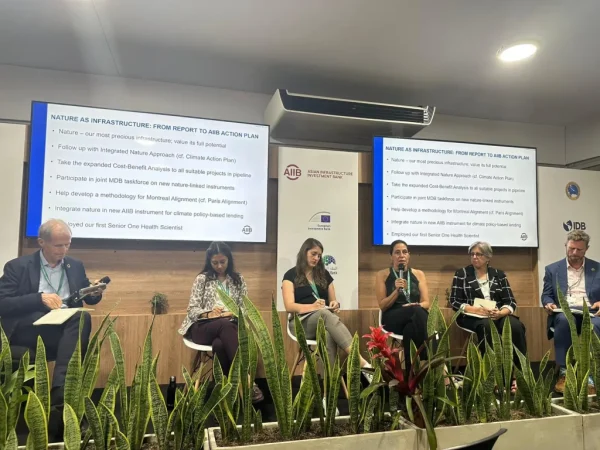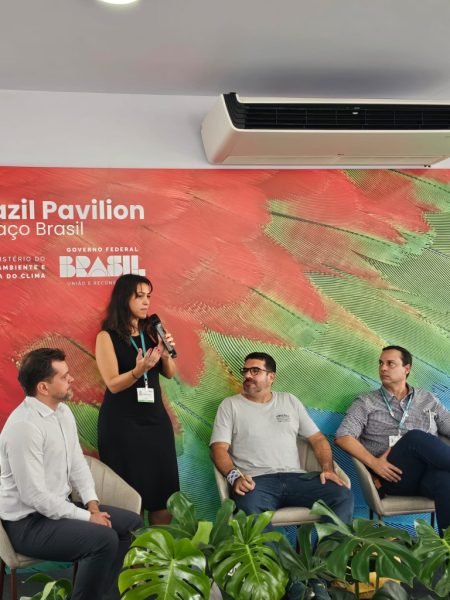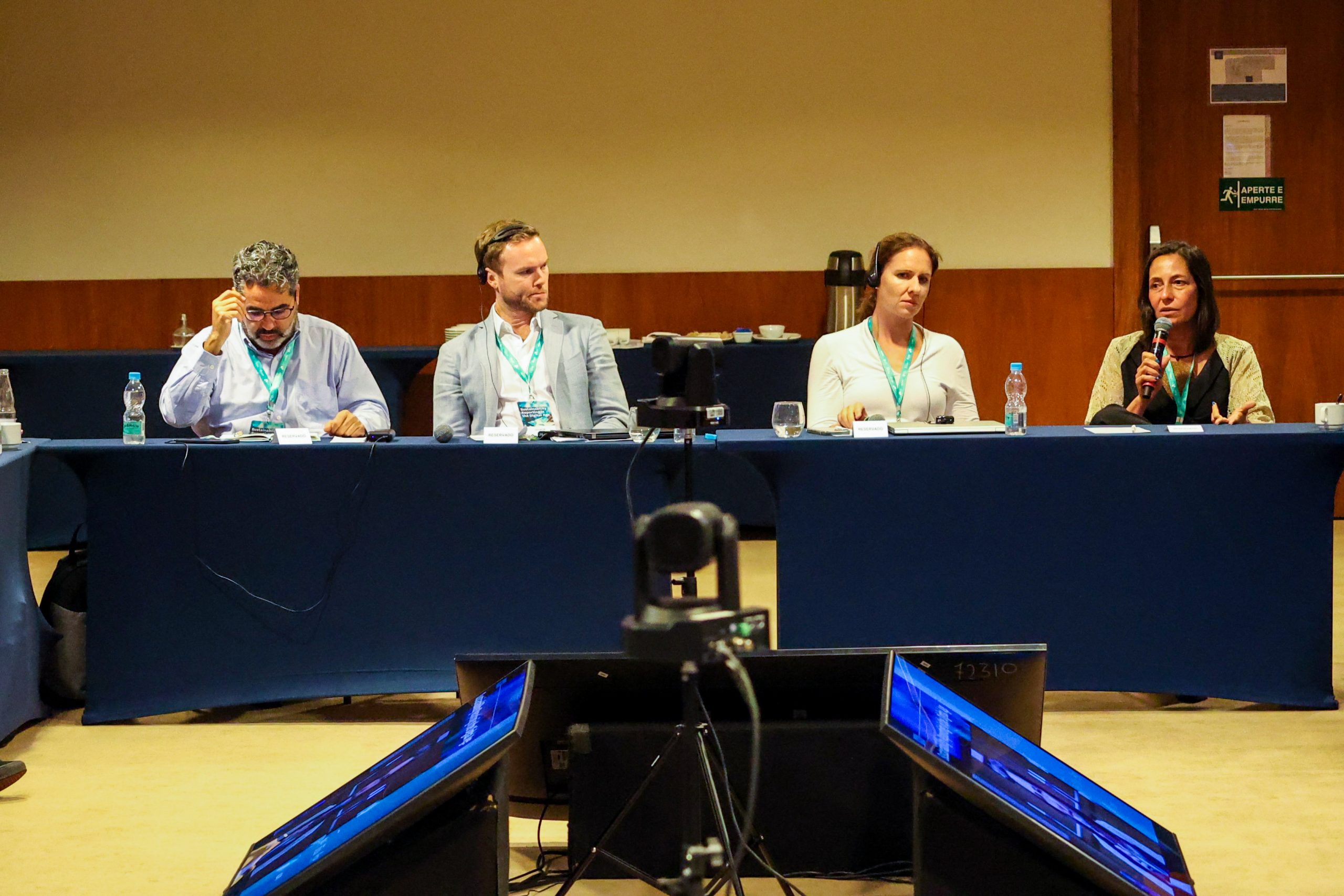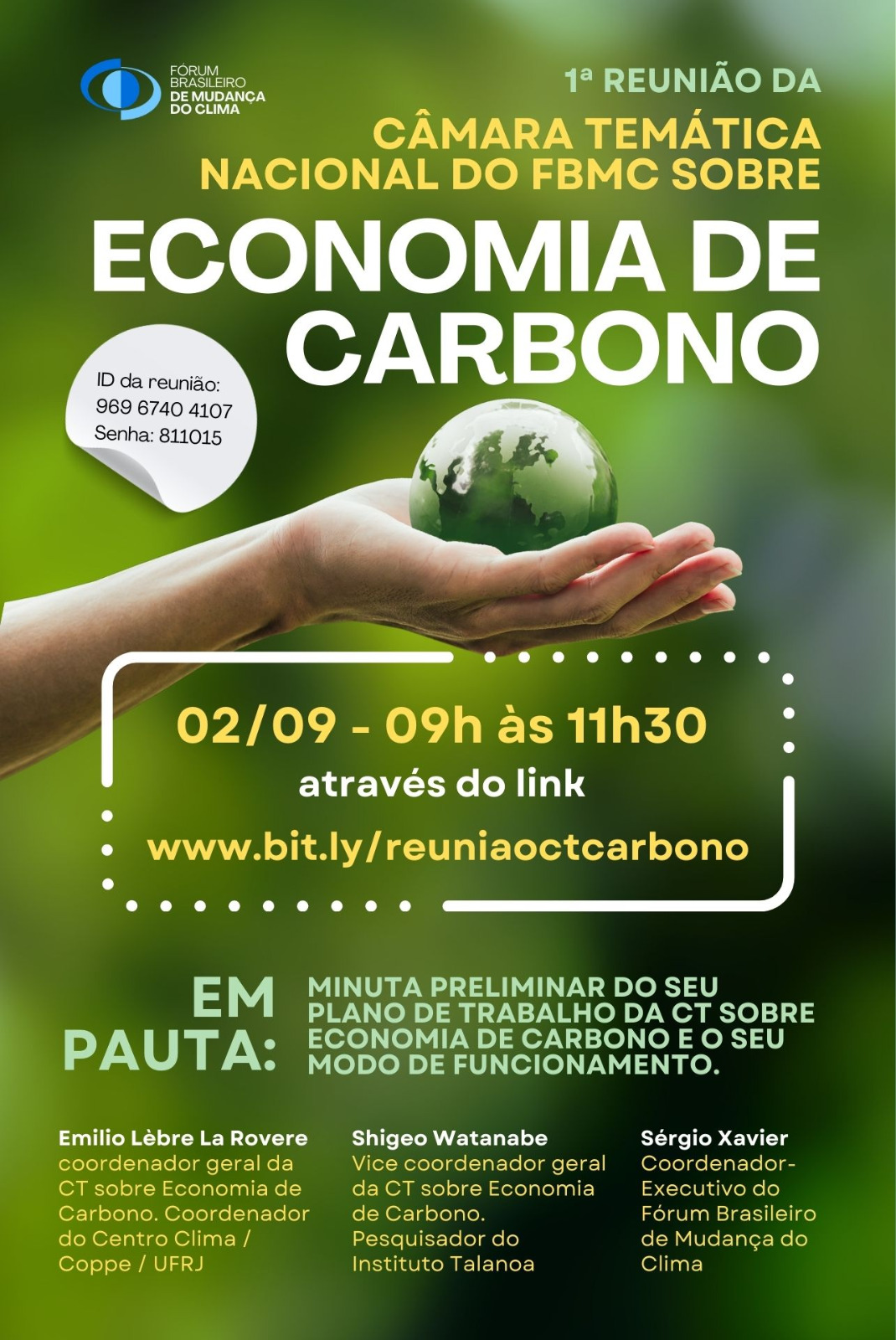iCS participates at COP16, for the first time, with contributions for the climate agenda
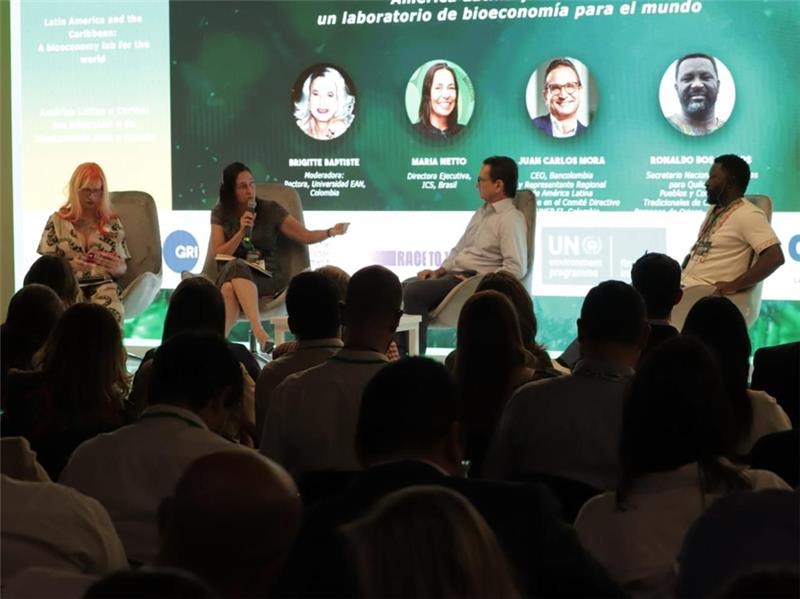
iCS participates at COP16, for the first time, with contributions for the climate agenda
Among the presented initiatives, a study with recommendations for the sociobioeconomy in the Amazon, which is a partnership between iCS and Banco do Brasil
The Institute for Climate and Society (iCS) and Banco do Brasil (BB) published the study “Boosting the Sociobioeconomy of the Amazon” during COP16. The document presents specific recommendations to advance the agenda in the Amazon Region and to facilitate the financing of initiatives that can boost a new development model for Brazil, promoting a more sustainable and just approach.
The document is the result of discussions held during the workshop of the same name, held between April 18 and 19, 2024 in Belém, Pará. Organized by iCS and BB, with technical support from Sitawi Finance for Good, the event brought together more than 100 actors from different sectors of society who, together, contributed to the construction of the recommendations. Among the mentioned areas are: Transport, logistics and infrastructure; Access to training, technical assistance and research and development in the production link; Governance and territorial management; Sale and demand for sociobiodiversity products; Perception of risk and incompatibility of the credit conditions; and Low level of knowledge and impact measurement.
Thais Ferraz, the programmatic director of iCS, emphasized the importance of the event and the partnership with BB. “The combination of public policy, private investment and philanthropic investment is fundamental in order to leverage the sociobioeconomy. At the workshop held in Belém, we brought together multisectoral partners and promoted a valuable exchange of experiences that culminated in this study. We were able to prepare a document that highlights the priority paths to boost the sociobioeconomy, providing practical examples of how to act in these collaboration models,” she highlighted.
The publication also provides approaches of innovative financing and an analysis of nine case studies of sociobioeconomy business ventures in the Amazon, which operate in different product chains of the sociobiodiversity, and differ from each other in relation to the business type and model, sources of financing, and scale and scalability. Read the publication on the website.
The panel for the launch of the study at COP16 included José Ricardo Sasseron (vice-president of Government Business and Corporate Sustainability at Banco do Brasil), Mauro Costa (senior supply chain manager at Natura), and Marcelo Salazar (Association for Sociobioeconomy Business in the Amazon – Assobio) and was moderated by Frederico Soares Machado (manager of Land Use at the Institute for Climate and Society). Carina Pimenta (the National Secretary of the Bioeconomy) participated at the end of the debate.
Considered the main space for discussion and negotiation of the UN Convention on Biological Diversity (CBD), the United Nations Conference on Biological Diversity (COP 16), held in Cali, Colombia, from October 21 to November 1, 2024, addressed essential topics for Brazil, which is one of the most biodiverse countries in the world. This edition marked the first COP on Biological Diversity after the approval of the Kunming-Montreal Global Biodiversity Framework in 2022, and emphasized the need to rethink economic models that do not prioritize extraction and pollution.
Active participation
This was the first time that iCS had actively participated at COP16, with events co-organized with partners, in addition to participation in high-level debates, in order to contribute to the implementation of a more ambitious climate agenda. The iCS delegation included Maria Netto, executive director, Cintya Feitosa, specialist in International Strategy, Maíra Borges, specialist in Engagement and Agents of Change, and Frederico Machado, manager of the Area of Transition in the Land Use, Food Systems and Sociobioeconomy.
On October 26, Maria Netto, the executive director of iCS, moderated the panel “Latin America and the Caribbean: a laboratory of bioeconomy for the world.” Important figures such as Ronaldo dos Santos, the Secretary of Policies for Quilombolas, Traditional Peoples and Communities of African Origin, Peoples of Terreiros and Roma of the Ministry of Racial Equality; Juan Carlos, CEO of Bancolombia and Regional Representative for Latin America and the Caribbean on the Steering Committee of UNEP FI; and Brigitte Baptiste, rector of the Ean University in Bogotá, completed the panel.
Maria was also one of the speakers at “Target 18 – Creating the Right Incentives for a Nature – Positive Future,” held on October 27. The event discussed the intersection between agriculture and conservation, emphasizing the need to expand actions from the private sector and financing. The importance of appropriately directed subsidies and financial incentives that can promote the biodiversity agenda set the tone for the meeting. Another central theme of the discussions was the nexus between climate and biodiversity, emphasizing the importance of aligning goals and initiatives to promote new economic and development models.
Also on October 27, Netto was one of the speakers at “Driving Policy for Biodiversity.” Organized by iCS in partnership with UNEP FI and Principles of Responsible Investment, the event discussed the role of public policies and measures adopted in both Colombia and Brazil in relation to the driving of investments in Nature-based Solutions (NbS).
The following day, it was the turn of the panel “Nature as infrastructure event from AIIB,” organized by the Asian Infrastructure Investment Bank (AIIB). The panel discussed ways to integrate nature and more resilient infrastructures, as well as financing opportunities. Maria Netto was one of the guest speakers and emphasized the importance of the planning that considers this interaction. She highlighted the great potential of Brazil in terms of restoration and bioeconomy, emphasizing the opportunities presented by the Nature Investment Lab (NIL) and the need of financial innovation to promote a more sustainable future.
The importance of bringing together legislators, private companies, financial institutions, philanthropic organizations and international cooperation in order to develop an environment that is conducive to investment in biodiversity and nature was a central theme in “Biodiversity financing: A global overview of innovative schemes to scale up resources,” on October 29. Ana Yang, the chair of the Decision-Making Board of iCS, moderated the panel, which was organized in partnership with the Brazilian Ministry of Finance, the Itaúsa Institute, the CPI Lab and Nature Finance.
On the same date, iCS was invited to participate in the high-level roundtable with the topic “From Rio to Cali leading to Belém: the leadership of Latin America and the Caribbean in Nature and Climate agendas.” Cintya Feitosa, a specialist in International Strategies, was alongside Razan Al Mubarak, president of the International Union for Conservation of Nature and High-Level Climate Champion of COP28, at the roundtable organized by the Climate Champions Team. Laclima and Coalizão Brasil, both grantee organizations of iCS, were also present.
Lastly, on October 30, the Pan-Amazon Network for Bioeconomy was launched, which is a dynamic alliance that brings together more than 30 intersectoral actors. The initiative, created by the Pan-Amazon Network for Bioeconomy, WRI and CI, and supported by iCS, has a mission to promote a sustainable and locally-led bioeconomy throughout the Amazon. The Network connects diverse stakeholders and has the objective to strengthen the means of subsistence, to conserve the biodiversity and to prioritize the economic models that value forests and rivers. Frederico Machado, the manager of Land Use, Food Systems and Sustainable Agriculture at iCS, was one of the speakers at the opening panel, which was moderated by Rachel Biderman, from CI.
